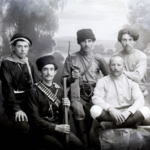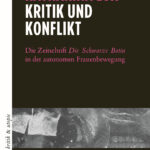Business History Conference 2025 Annual Meeting (Web)
Time: 13.-15.03.2025
Venue: Atlanta, Georgia
Proposals by: 01.11.2024
In recent years, the role of labor in modern business has become increasingly difficult to ignore. The past year alone has witnessed the resurgence of unions in some countries and the rise of so-called „digital sweatshops“ in others. Related developments – the disruption of global supply chains dependent on low-wage work, the fear that artificial intelligence will render high-wage jobs obsolete, and the growing problem of forced labor – similarly encourage examination of the relationship between businesses and the human beings who power them.
In light of these trends, the Program Committee invites sessions and individual papers that consider the history of labor – broadly defined – as it relates to the larger history of business. Potential topics include the history of automation, deskilling, offshoring, the service sector, self-employment, the gig economy, child labor, workplace safety, migrant labor, white collar work, corporate paternalism, gender employment and pay gaps, government regulation, scientific management, labor organizing, union busting, coerced and enslaved labor, profit-sharing, and many more.
While the committee encourages submissions to take up these themes, papers addressing all other topics will receive equal consideration by the program committee in accordance with BHC policy. Graduate students and emerging scholars in the field are particularly encouraged to attend. Graduate students and recent PhDs whose papers are accepted for the meeting may apply for funds to partially defray their travel costs; information will be sent out once the program has been set.
The committee is especially interested in sessions and papers that make business history relevant to contemporary policy debates. Toward that end, the organizers welcome proposals for roundtables, workshops, and other events that move beyond the traditional panel format.
The Program Committee includes co-chairs Ai Hisano (Univ. of Tokyo) and Grace Ballor (Univ. of Bocconi); as well as Continue reading

 Frauenhetz in Koop. mit STICHWORT
Frauenhetz in Koop. mit STICHWORT  Svenja Bethke (Univ. of Leicester) and Eliza McKee (New York Univ.)
Svenja Bethke (Univ. of Leicester) and Eliza McKee (New York Univ.)  Frauenbildungsstätte Frauenhetz
Frauenbildungsstätte Frauenhetz